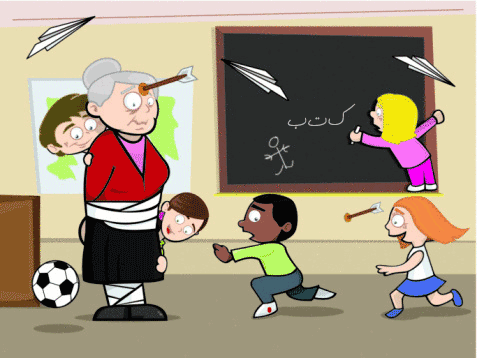Why Students misbehave in the classroom?
It has been a sense for me to elaborate about educational issues. I really interested in how teachers teach and students learn. Several articles have been published by me in this community focusing on educational issues. The latest post of mine is about learning objectives and how to put it in a lesson plan.
Today, I am going to move my side on students instead of teacher. This means that I will write about students. The focus on today’s post is about the causes of students’ misbehavior. This topic is very crucial for teachers in identifying why their students misbehave in the school or in the classroom.
When I refer to this topic I try to read some literature review that focusing its research on students’ attitudes. One of them is a book that written by Kyriacou (2009) on the title Essential Teaching Skills. This book is full of its benefits for teacher, I think teacher must read this one like I did.
Talking about students’ behavior, generally, we can start with the assumption that all students will be willing to engage in the work, and are only likely to misbehave if there are specific reasons or motives for doing so. As such, our task is to make it as easy as possible for students to sustain good behavior. There are several main causes that why students misbehave in the classroom or in the school:
Boredom
If the activities are presented in a manner that fails to elicit and sustain their interest, or if the activity lasts for too long and fails to be stimulating, or if the activity is too easy or is felt to lack relevance, then students are likely to become bored.Prolonged mental effort
Most academic work requires sustained mental effort, and this is demanding. Everyone finds that sustaining mental effort for long periods is difficult and, at times, unpleasant.Inability to do the work
Students may be unable to do the work set, either because it is too difficult or because they are unclear about the task demands.Being sociable
Students have a complex social life in schools, in which friendships are made, conflicts arise and interests are shared. Aspects of these social relationships between students will often spill over into a lesson.Low academic self-esteem
Some students will lack confidence in themselves as learners, and may have experienced frequent failure in the past that makes them reluctant to engage in academic tasks for fear of further failure (failing because you did not try is much less painful than failing if you did). Such pupils can become quite alienated from the academic expectations that form part of a positive classroom climate.Emotional difficulties
Some students may have emotional problems which make it difficult for them to adjust to and cope with the demands of school life and the academic demands of the classroom. It may be because they are being bullied in school, or because they are neglected at home. In many cases, such students may become attention seeking, and actually enjoy the attention they provoke from you or their fellow students for misbehaving.Poor attitudes
Some students may simply not value doing well at school and, to the extent that problems arise, such as finding the work boring or difficult, will switch off their effort. Moreover, some may try to avoid doing the work by arriving late to lessons, or keeping a low profile while doing little. When challenged, they may be apologetic or hostile, but still do little. Some students may deliberately make a nuisance of themselves simply to cause excitement.Lack of negative consequences
Whenever a student misbehaves, your actions that follow in consequence must be aimed at getting the pupil involved in the work again as quickly as possible. Furthermore, your behaviour should act to dissuade such student misbehaviour occurring again in similar circumstances. If students misbehaviour is not picked up quickly and discouraged by the consequences that follow, it is likely to become more frequent.
By understanding these causes, the teacher is expected to have some strategies in teaching in order to avoid students misbehavior when he or she teaches. Establishing teacher authority is the first stage that the teacher can do to deal with students misbehavior.What and How to establish teacher authority?, I will explain it in the next post.
..........................................................................................................................................
Regards,
Mrs. Don
A writer of educational content
..........................................................................................................................................

Useful post not only for teachers but for parents as well.
Unfortunately we will no longer be supporting your posts.
This is very usefull content..wish you posting like it more and more.@mistamistong. I love it very much.
Nice post @mistamistong. Thanks for sharing it with us. It is a vary helpful for teachers.
This post has received a -16.67 % downvote from @meanpeoplesuck thanks to: @blacklist-a.